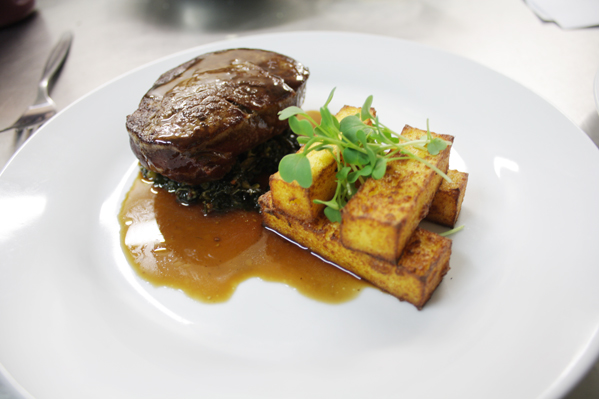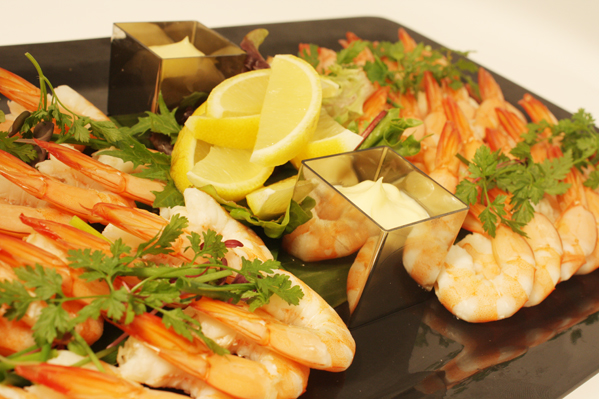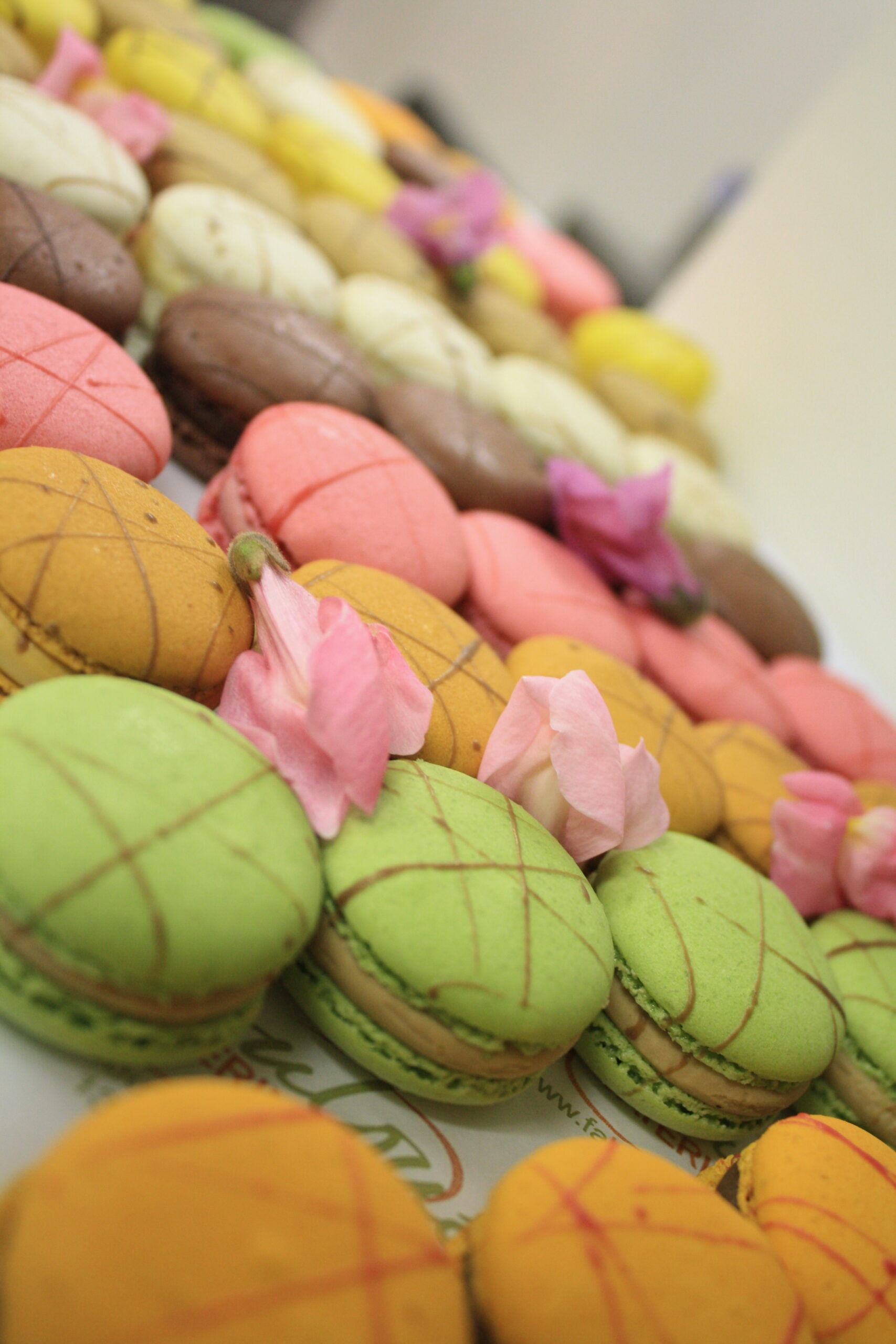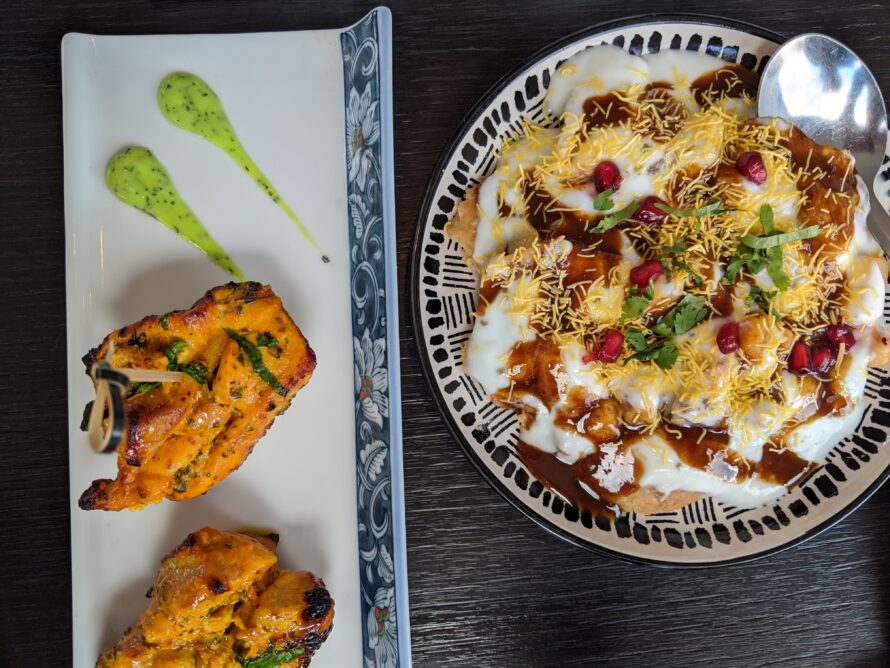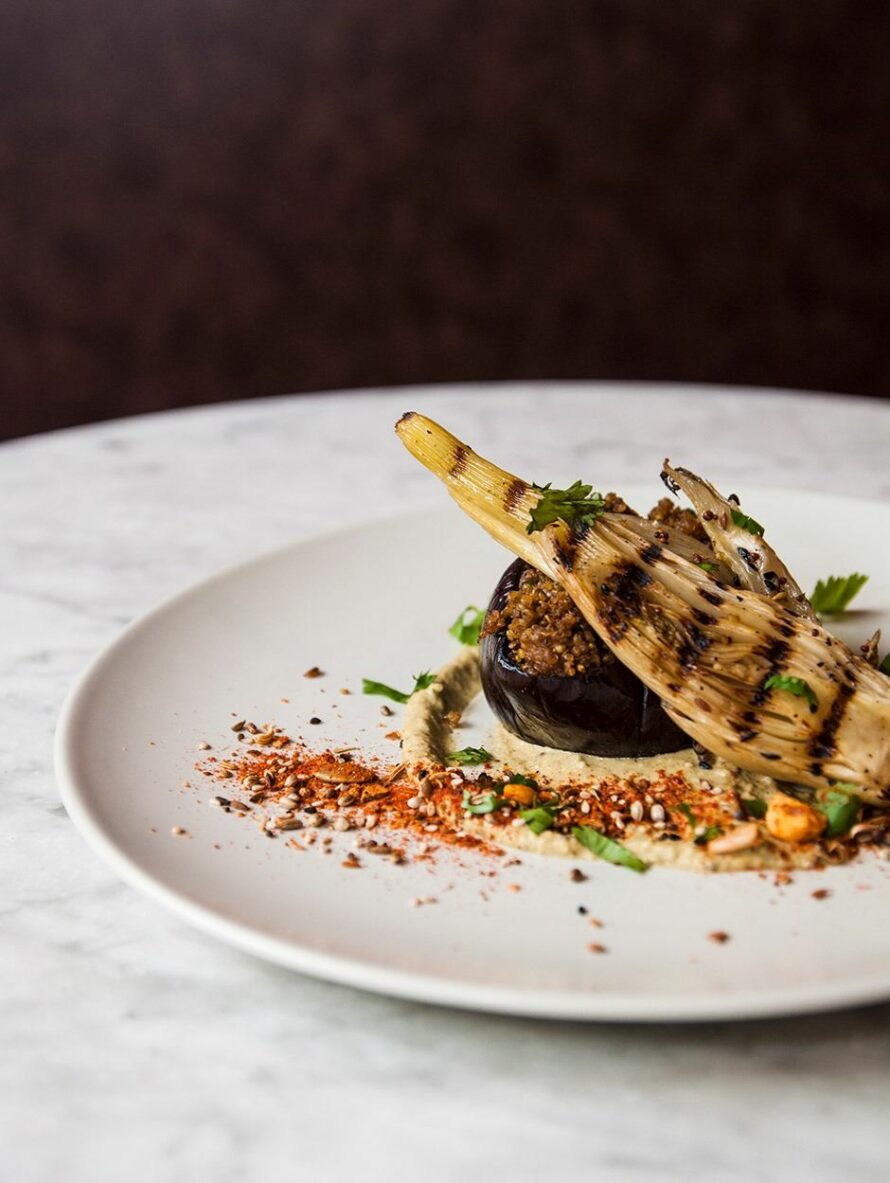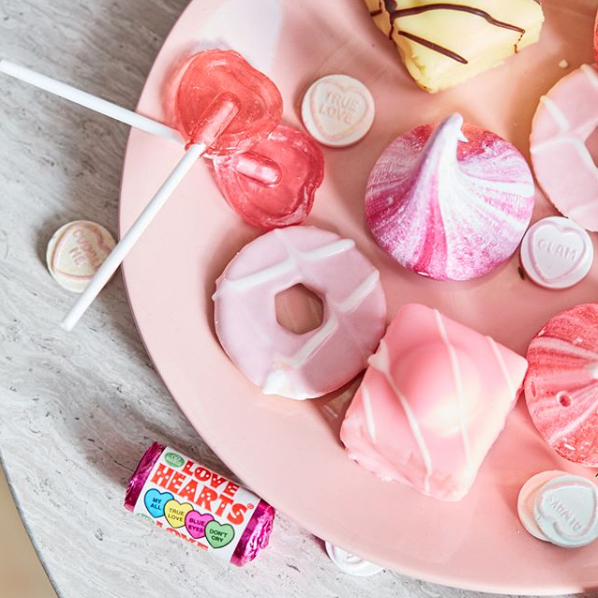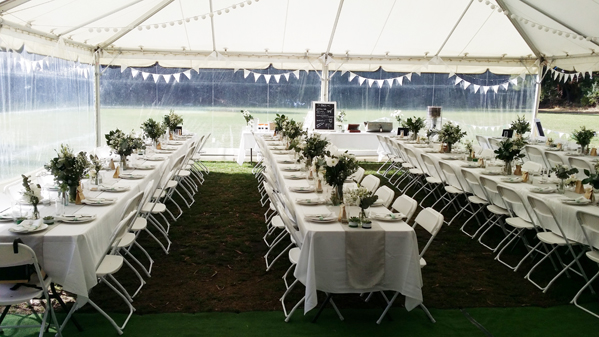
“Preparing meals for weddings is a little different from catering other events,’’ says Adam Pope, owner of Fabulous Catering, which has catered more than 4200 weddings in the nine years since it opened its doors and more than 82,000 other events during that period.
“Your wedding day is one of the most special in your life and, hopefully, you only have one, so there are a lots of emotions associated with weddings that just aren’t associated with other events. You can’t re-do a wedding. You get one chance and that’s it.
“The stress levels tend to be a lot higher at weddings and every couple wants their day to be absolutely perfect, so it’s crucial, when choosing a caterer, that they are willing to be flexible and able to create a menu that isn’t generic but fits into your overall style and theme. Also, you want to find a caterer that can look after all your guests’ dietary requirements and will put some effort into ensuring these guests won’t feel sub-par or go home hungry.”
Aside from the ability to dish up delicious treats, among the other important skills a wedding caterer needs is the ability to stay organised and be prepared for “anything and everything” says Adam who admits his years as a wedding caterer have made him “almost obsessive” about having back-ups for everything from staff that fall ill at the last moment to backup ovens in every one of their catering trucks, “just in case.”
Fabulous Catering even staffs its kitchen until 2am every day of the week and, if food emergencies happen outside those hours, staff can be contacted via their main 1300 number.
Each of their catering trucks contains a petrol generator in case of a blackout and an ’emergency catering kit’ containing extra napkins, glasses, sauces, tongs, spare serving dishes and burners.
Adam says that he receives at least one emergency job, where his staff are called at the last minute to step in for a caterer who has been unable to complete a job, at least once per week, but up to six times per month. Most of the time that cancelled job is for a wedding.
He says the most common reasons caterers pull out at the last minute are due to a lack of staff, usually illness; that they have double booked or they are unable to finish due to some outside event such as a power failure, a vehicle breakdown or, as happened once, a caterer’s broken leg.
Adam cites one particularly distressing experience, four years ago, where a couple’s caterer pulled out less than three days before their winery wedding, leaving the couple with no food service for their 120 guests, many of whom were flying in from overseas for the event.
“It could have been a nightmare for them and it would have been impossible for some caterers to pull off, but because we’ve got so many fail-safes in place, we managed it relatively easily.
“To this day, I can still remember how petrified that poor bride was, but also how happy we were able to make her by stepping in and pulling it off without a single guest ever knowing about what had happened,” adds Adam. “Most caterers are hard-working, dedicated professionals who’ll go above and beyond to ensure a couple’s big day goes without a hitch but, sometimes, life has other plans, so the only way to avoid such disasters is to ensure you hire a caterer who plans for all contingencies, be it an ill staff member or the breakdown of a vehicle.
As such, every one of Fabulous Catering‘s fleet of catering trucks contains not one but two ovens “just in case the oven at the venue or at someone’s home doesn’t work.”
They have at least 150 function staff in both Melbourne and Sydney and comparable ratios in other states – and, says Adam proudly, “In nine years, we’ve never ever cancelled a job. Not even once.”
Fabulous Catering offers wedding catering across Australia and, though they started out life as a small, husband-and-wife run finger food caterer, have since grown and branched out extensively. They now cater for everything from small backyard weddings and birthday parties with a gourmet barbecues and, of course, finger food, to grand and very formal corporate sit-down dinners with guest lists of more than 2200 people.
“I love the Boy Scouts’ motto, ‘Be prepared,’’’ says Adam whose father, an IT professional responsible for the maintenance and backing up of crucial data for major IT enterprise systems instilled in him the importance of being prepared for any sort of disaster.
“Dad would back up everything and, on the night before my brother’s Year 12 exams when the computer crashed, it wasn’t a problem because my Dad had back-ups of everything,’’ adds Adam. “Imagine if he failed High School because of a failed hard drive? That night taught me a huge lesson about the importance of planning and always being prepared – and all these years later, I’ve never forgotten it.
“Who’d have thought food and hard drives had anything in common, aside from bytes, right?”
So profound was this lesson that, when choosing the location for Fabulous Catering’s commercial kitchens and Melbourne headquarters, Adam spent months scouting locations, eventually settling on Knox in Melbourne’s East.
“We’re located 25 minutes from Melbourne’s CBD and sit in a spot that has access to several major roads that can take us to every other part of the city. If one arterial is blocked, we can easily switch to the next, which means our clients won’t get calls from us saying that we’re going to be late because we’re stuck in traffic!”
It is this attitude that has seen Fabulous Catering grow so quickly.
At the height of the season, Adam says his business does about 18 weddings a week nationally, on top of the other 150 or so non-wedding events they may be catering. Their record stands at a whopping 110 events in a single day.
“We absolutely love what we do and it’s fantastic that couples trust us with such an important part of their very big days. I get that, even more so since my own wedding a few years ago. I was so worried about everything and there was a lot of pressure, me being a ‘food guy’ and all that, but it went brilliantly, the food and wine looked great and tasted even better – and I was a very proud groom – and caterer!”
Adam’s Top 5 tips for choosing your potential caterer:
– How many years have you worked in business? How many weddings have you catered? Someone who’s worked in hospitality for a few months is, most likely, a lot less experienced than someone who’s worked in hospitality for many years. Similarly, someone who has never catered for a wedding but has done lots of birthday parties or outdoor barbecues won’t necessarily understand the subtleties of catering a large sit-down wedding, so weigh up their experience with their knowledge of weddings.
– How are you going to put together my event? Find out how your potential caterer works behind the scenes. That will always tell you more than testimonials. Also, if they’ve been in business for a long time, they’re probably doing something right!
– The proof is in the pudding, literally! Ask for a sample of their food. I wouldn’t want to first taste my caterer’s cooking on my wedding day! Be sure to ask if you can sample the food you’re paying for.
– Communication is everything! Ensure every vendor has a copy of your wedding day Run Sheet. This will ensure they’re all on the same page! Create a Google Doc that can be shared with them and updated by each vendor and everyone will know what’s going on and can even pitch in if another vendor is running late. I’ve helped set up more than a few photo booths in my time because I’ve realised the vendor was behind the overall schedule and we’re not just about ensuring the food’s great. We want your entire day to run smoothly!
– What are your backup plans? Don’t be shy about asking about your caterer’s back up plans. What will they do if they if a staff member falls sick at the last moment or a vehicle breaks down? Do they bring their own equipment and what happens if an oven or microwave breaks down etc.
